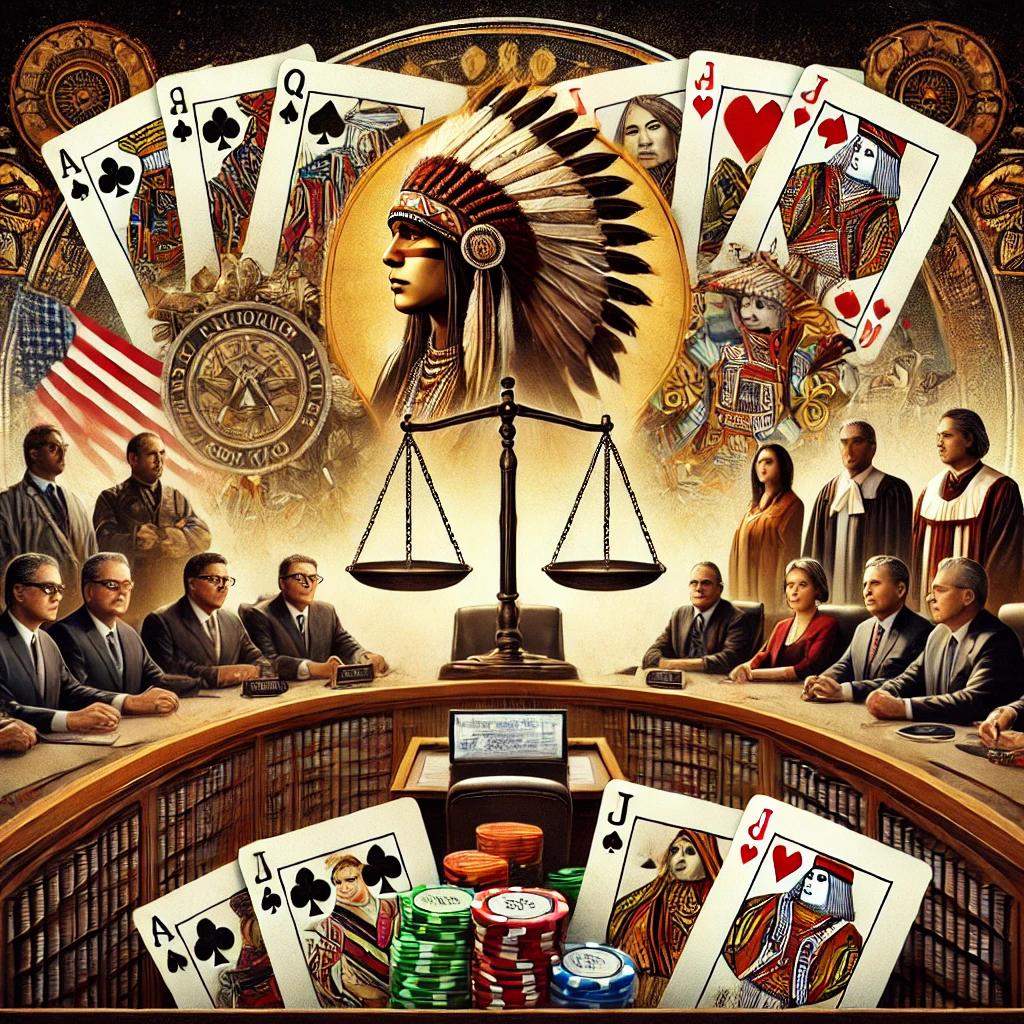
Native Tribes Take Legal Action
California Native American tribes have launched a groundbreaking legal battle to uphold their exclusive rights to operate specific gambling activities. On January 2, seven tribes filed lawsuits against over 80 cardrooms across the state. They argue that these establishments are offering illegal “banked” card games, which the California Constitution reserves exclusively for tribal casinos. This legal action, made possible by the recently enacted Senate Bill 549, marks a significant development in the ongoing tension between tribal and non-tribal gambling operators.
Understanding Banked Games
Banked card games, such as blackjack and baccarat, are games where a central entity—usually a casino—acts as the house, collecting losses and paying out winnings. While Proposition 1A, passed in 2000, gave tribes the exclusive right to offer such games, cardrooms allegedly exploit loopholes by using third-party proposition players to act as the house. This practice, the tribes claim, violates state laws and undercuts the voter-approved framework meant to benefit tribal communities.
Financial Implications for Communities
The stakes in this legal dispute extend far beyond tribal revenues. Many California cities depend heavily on tax revenue from cardrooms to fund essential services like police, fire departments, and road maintenance. For instance, cities like Hawaiian Gardens and Commerce derive nearly half of their budgets from cardroom taxes. A court ruling in favor of the tribes could destabilize municipal finances, leaving local governments scrambling to replace lost revenue.
The Broader Legal Context
Senate Bill 549, signed into law by Governor Gavin Newsom, represents a critical tool for tribes in their fight to maintain their exclusive gambling rights. However, the bill’s provisions are time-sensitive, requiring lawsuits to be filed in Sacramento Superior Court by April 1. This limited window has spurred immediate legal action, with tribes aiming to halt what they describe as years of illegal competition from cardrooms.
Industry Perspectives
Cardrooms, on the other hand, argue that they operate in full compliance with state laws and have been subject to rigorous oversight. They emphasize their contributions to local economies, providing thousands of jobs and generating substantial tax revenue. Industry representatives view these lawsuits as an attempt to stifle lawful competition and protect tribal monopolies.
A Pivotal Moment for California Gambling
This legal battle highlights the complexities of California’s gambling landscape, where competing interests often clash. While tribal casinos aim to protect their rights and revenues, cardrooms strive to preserve their place in the industry. The outcome of this case could reshape the future of gambling in California, setting a precedent for how such disputes are resolved in the years to come.









